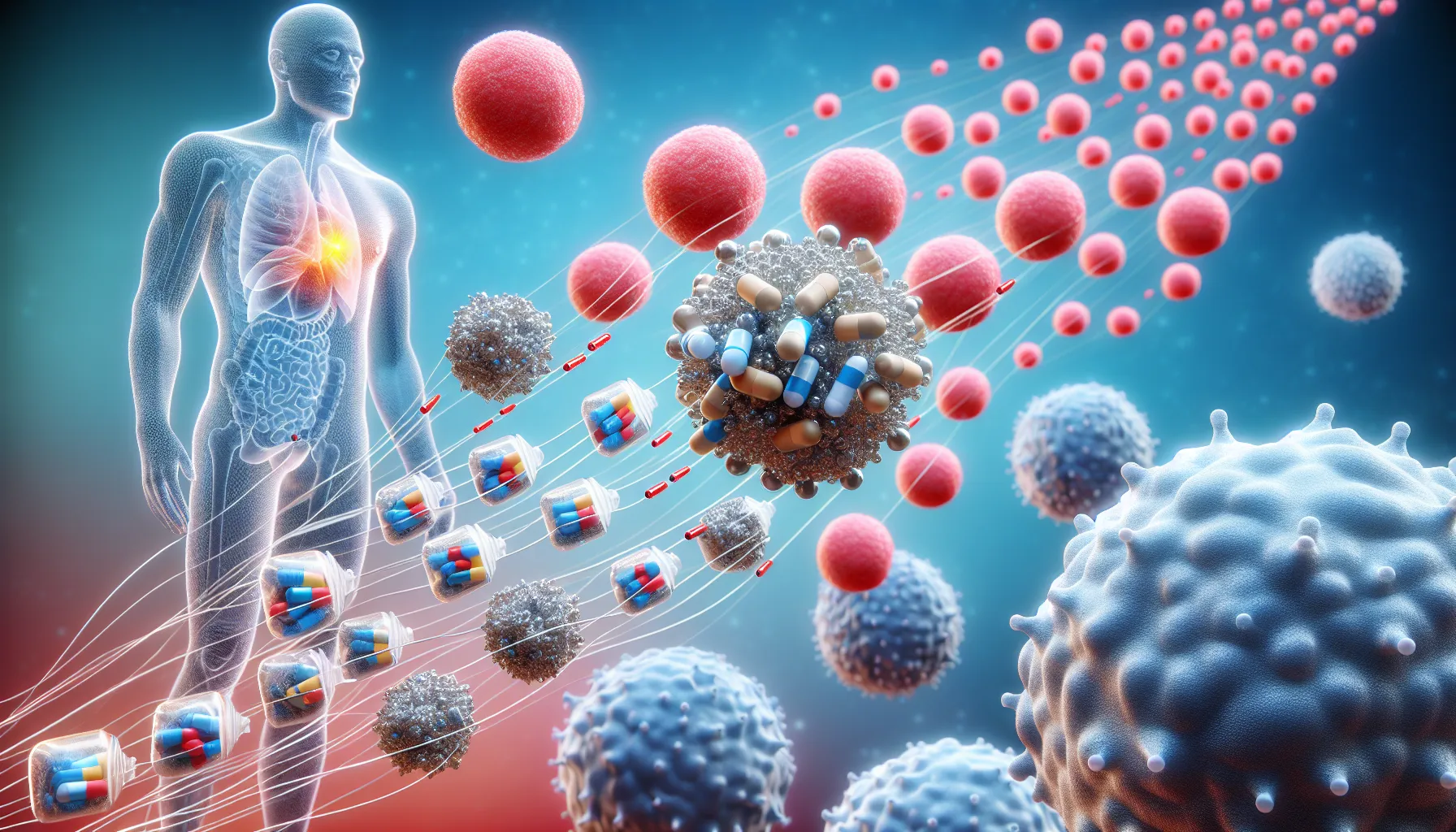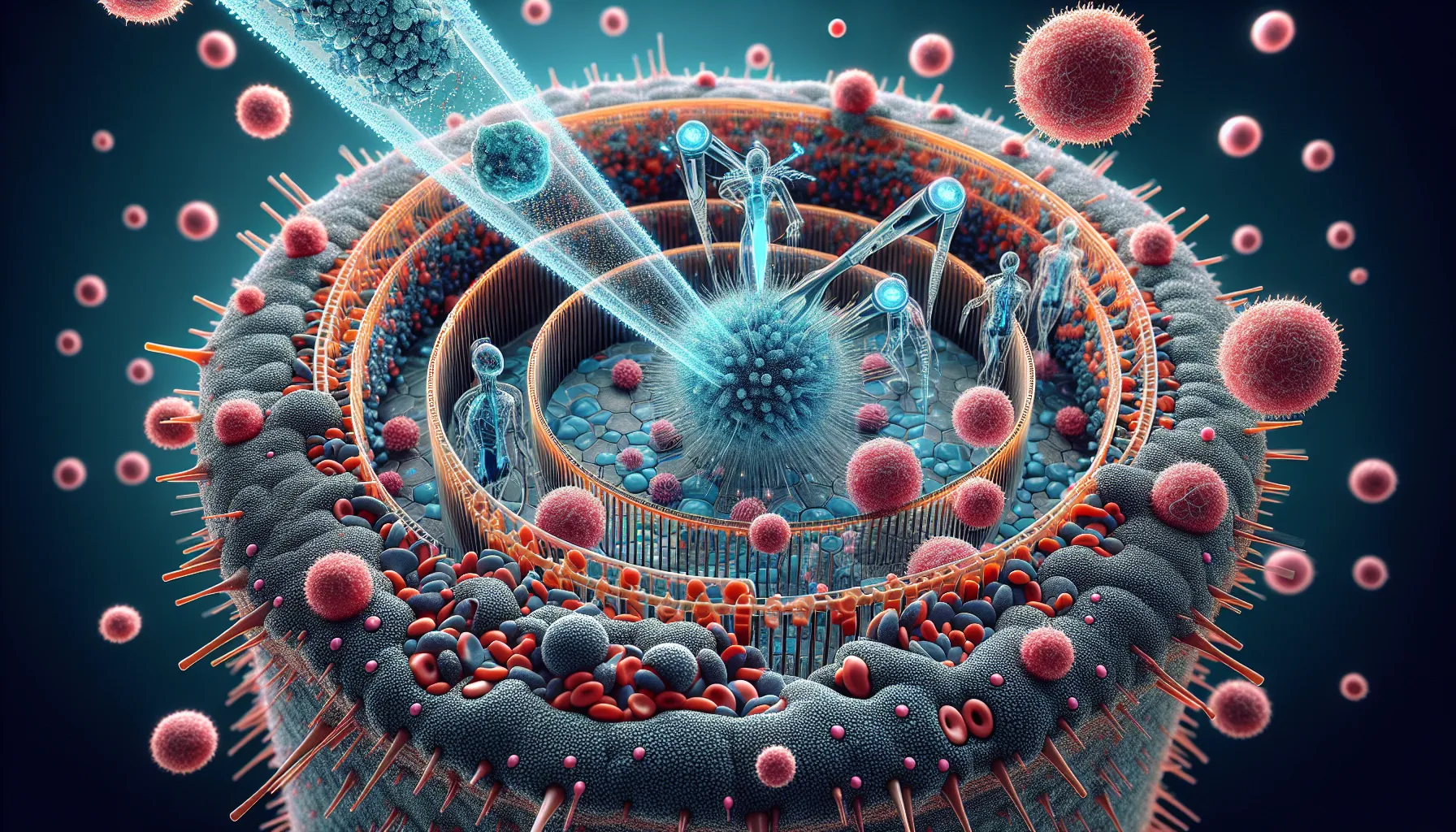Nanotechnology’s impact on medical advancements is a fascinating topic that has been gaining traction in IELTS Writing Task 2 essays. Based on recent trends and the increasing relevance of this subject in modern healthcare, it’s highly likely that questions related to nanotechnology and medical breakthroughs will appear more frequently in future IELTS exams. Let’s explore a sample question and analyze how to craft compelling essays across different band scores.
Analyzing the Task 2 Question
Some people believe that nanotechnology will revolutionize medical treatments in the future. Others are concerned about the potential risks and ethical implications of this technology. Discuss both views and give your own opinion.
This question presents a balanced approach to discussing nanotechnology in medicine. It requires candidates to:
- Explain how nanotechnology could revolutionize medical treatments
- Discuss potential risks and ethical concerns
- Provide a personal opinion on the topic
Now, let’s examine sample essays for different band scores, starting with a high-band response.
Sample Essay 1 (Band 8-9)
Nanotechnology, the manipulation of matter at an atomic scale, has emerged as a groundbreaking field with immense potential to transform medical treatments. While proponents argue that it will usher in a new era of healthcare, critics raise valid concerns about its risks and ethical implications. This essay will explore both perspectives before offering a balanced view on this contentious issue.
Advocates of nanotechnology in medicine emphasize its revolutionary potential. Nanomedicine could enable targeted drug delivery, minimizing side effects and maximizing therapeutic efficacy. For instance, nanoparticles could be engineered to seek out and destroy cancer cells without harming healthy tissue, potentially revolutionizing cancer treatment. Moreover, nanotechnology could facilitate early disease detection through nanoscale sensors, allowing for more timely and effective interventions. These advancements could significantly improve patient outcomes and quality of life.

However, skeptics raise important concerns about the potential risks and ethical implications of nanotechnology in medicine. One primary concern is the long-term effects of nanoparticles on human health and the environment. The unique properties of nanomaterials may lead to unforeseen interactions within the body or ecosystems, potentially causing harm that is difficult to predict or mitigate. Additionally, there are ethical considerations regarding the use of nanotechnology in human enhancement, blurring the line between treatment and augmentation. This raises questions about equity and access to such technologies, potentially exacerbating existing healthcare disparities.
In my opinion, while the potential benefits of nanotechnology in medicine are profound, a cautious and regulated approach is essential. The transformative power of nanomedicine should not be overlooked, but neither should the legitimate concerns about its safety and ethical implications. I believe that continued research and development in this field should be encouraged, but with stringent safety protocols and ethical guidelines in place. Furthermore, international cooperation and transparent communication about both the promises and risks of nanotechnology are crucial to ensure its responsible integration into medical practice.
In conclusion, nanotechnology presents a double-edged sword in the realm of medical advancement. Its potential to revolutionize treatment methods is undeniable, yet the associated risks and ethical dilemmas cannot be ignored. A balanced approach that harnesses the benefits of nanotechnology while carefully addressing its challenges is the most prudent path forward in shaping the future of medicine.
(Word count: 369)
Essay Analysis (Band 8-9)
This essay demonstrates excellence across all marking criteria:
-
Task Response: The essay fully addresses all parts of the task, presenting a well-developed response with relevant, extended ideas and a clear position throughout.
-
Coherence and Cohesion: Ideas are logically organized with clear progression. Paragraphs are well-linked, and cohesive devices are used effectively but not overused.
-
Lexical Resource: A wide range of vocabulary is used with flexibility and precision. Less common lexical items are used with accuracy (e.g., “usher in,” “contentious,” “exacerbating”).
-
Grammatical Range and Accuracy: A wide range of structures is used accurately and appropriately, with only rare minor errors.
Sample Essay 2 (Band 6-7)
Nanotechnology is a new field of science that many people think will change medicine in big ways. Some believe it will make treatments much better, while others worry about the risks and ethical problems. This essay will look at both sides and give my opinion.
Those who support nanotechnology in medicine say it can do amazing things. For example, it might help deliver drugs exactly where they are needed in the body, which could make treatments work better and have fewer side effects. It could also help doctors find diseases earlier, so they can treat them before they get worse. These improvements could help many sick people get better faster.
On the other hand, some people are worried about using nanotechnology in medicine. They think it might be dangerous because we don’t know all the effects it could have on our bodies or the environment. There are also concerns about using it to make people “better than normal,” which might not be fair if only rich people can afford it. These are important things to think about before we use this technology too much.
In my opinion, nanotechnology in medicine could be very helpful, but we need to be careful about how we use it. I think we should keep studying it to learn more about how it can help people, but we should also make sure it’s safe and fair for everyone. It’s important to have rules about how to use it and to tell people about both the good and bad parts of nanotechnology.
To sum up, nanotechnology could make big changes in medicine, but it also comes with risks and ethical questions. We need to find a balance between using its benefits and being careful about its problems. This way, we can use nanotechnology to help people without causing new problems.
(Word count: 309)
Essay Analysis (Band 6-7)
This essay demonstrates good control of language but lacks some of the sophistication of the higher band essay:
-
Task Response: The essay addresses all parts of the task, but some points are underdeveloped.
-
Coherence and Cohesion: There is a clear overall progression, but cohesive devices are sometimes overused or inadequate.
-
Lexical Resource: An adequate range of vocabulary is used for the task, with some attempts at less common vocabulary, though not always successfully.
-
Grammatical Range and Accuracy: A mix of simple and complex sentence forms is used, with good control and only occasional errors.
Key Vocabulary to Remember
-
Nanotechnology (noun) – /ˌnænəʊtekˈnɒlədʒi/ – The branch of technology that deals with dimensions and tolerances of less than 100 nanometers.
-
Revolutionize (verb) – /ˌrevəˈluːʃənaɪz/ – To change something completely and fundamentally.
-
Ethical implications (noun phrase) – /ˈeθɪkəl ˌɪmplɪˈkeɪʃənz/ – The potential consequences or effects of an action in terms of morality and ethics.
-
Nanomedicine (noun) – /ˌnænəʊˈmedɪsɪn/ – The medical application of nanotechnology.
-
Targeted drug delivery (noun phrase) – /ˈtɑːɡɪtɪd drʌɡ dɪˈlɪvəri/ – A method of delivering medication to a specific part of the body.
-
Therapeutic efficacy (noun phrase) – /ˌθerəˈpjuːtɪk ˌefɪˈkæsɪti/ – The ability of a treatment to produce a beneficial effect.
-
Nanoscale sensors (noun phrase) – /ˈnænəʊskeɪl ˈsensəz/ – Extremely small devices used to detect and respond to physical stimuli.
-
Human enhancement (noun phrase) – /ˈhjuːmən ɪnˈhɑːnsmənt/ – The use of technological means to improve human characteristics beyond normal.
-
Exacerbate (verb) – /ɪɡˈzæsəbeɪt/ – To make a problem or bad situation worse.
-
Stringent (adjective) – /ˈstrɪndʒənt/ – Strict, precise, and exacting.
In conclusion, mastering essays on nanotechnology’s role in medical breakthroughs requires a deep understanding of the topic, strong analytical skills, and the ability to present balanced arguments. As this subject continues to evolve, it’s crucial to stay informed about the latest developments in nanomedicine and its potential impacts on society. To further enhance your IELTS Writing skills, consider practicing with similar topics that intersect technology and ethics, such as the role of AI in improving medical research or the importance of interdisciplinary studies in advancing scientific knowledge.
For additional practice, try writing your own essay on this topic and share it in the comments section below. This active approach to learning can significantly improve your writing skills and prepare you for success in the IELTS exam.
